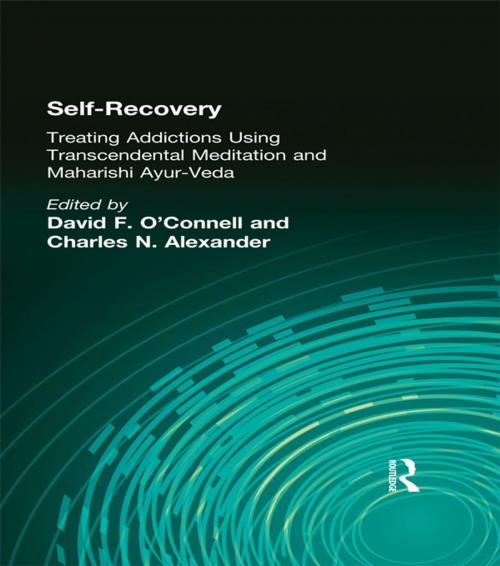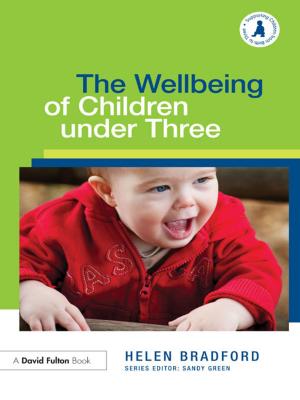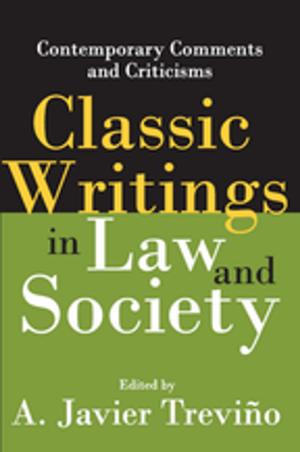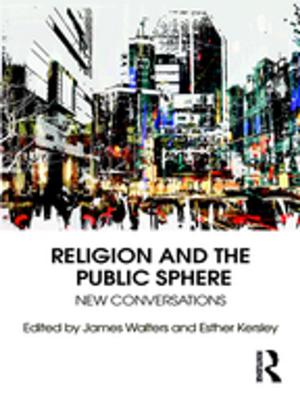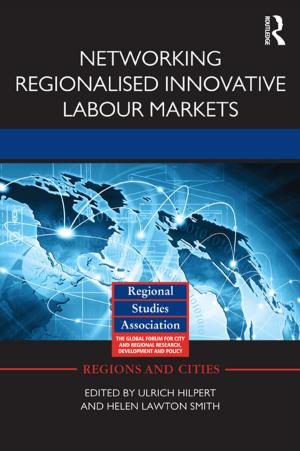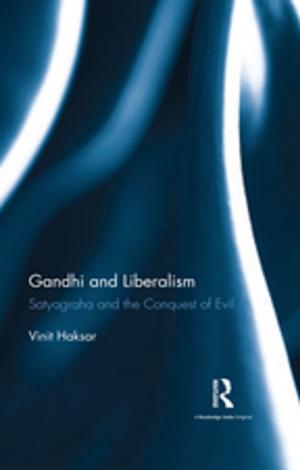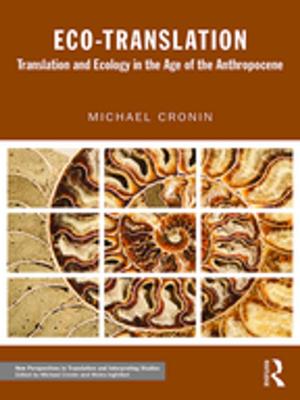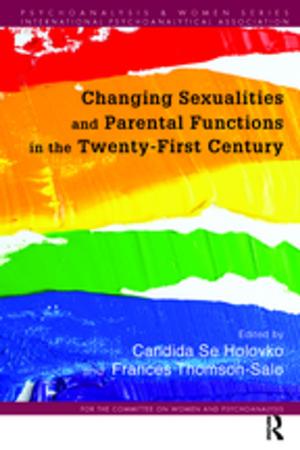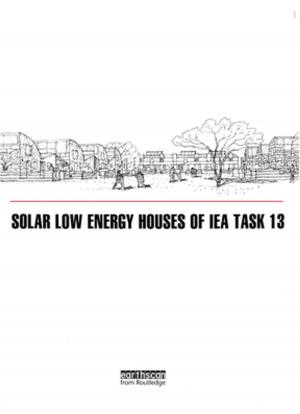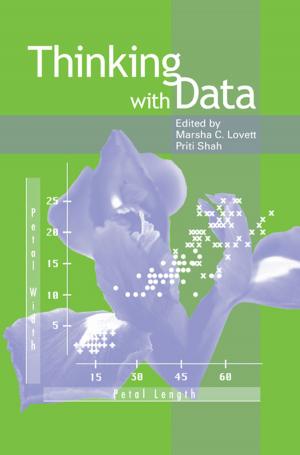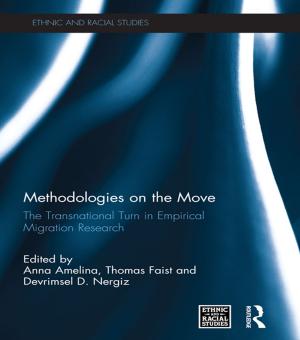Self-Recovery
Treating Addictions Using Transcendental Meditation and Maharishi Ayur-Veda
Nonfiction, Health & Well Being, Medical, Alternative & Holistic Medicine, Alternative Medicine, Psychology| Author: | David F O'Connell, Charles N Alexander | ISBN: | 9781317823421 |
| Publisher: | Taylor and Francis | Publication: | March 18, 2014 |
| Imprint: | Routledge | Language: | English |
| Author: | David F O'Connell, Charles N Alexander |
| ISBN: | 9781317823421 |
| Publisher: | Taylor and Francis |
| Publication: | March 18, 2014 |
| Imprint: | Routledge |
| Language: | English |
A valuable resource for addressing/promoting the spiritual awakening/development for patients based on a thoroughly researched system of meditation
Nearly 40% of americans saw an alternative healthcare practitioner last year. Interest in Yoga-an aspect of ayurveda-is growing nationally and is starting to become part of more progressive treatment programs. Patients want more. Providers need to offer more. And choices need to be based on sciencetific research on complementary/alternative medicine, which is under-researched in the addictions treatment field right now. Their has been a flurry of interest in Trancendental Meditation (TM) the past few months, mostly due to very impressive research on lowering blood pressure-especially in African Americans. This groundbreaking, scientifically based book shows how TM can have profound health-promoting effects on addictions as well, according to recent research on profound brain changes caused by TM practice.
Self-Recovery acquaints readers with the use of Transcendental Meditation program and Maharishi Ayur-Veda. This natural comprehensive approach to health care, as brought to light from the ancient Vedic tradition of India by Maharishi Mahesh Yogi, allows individuals to break negative habits that arise from an incomplete understanding of the relationship between mind, body, and environment. Self-Recovery shows how this ancient system of mind-body medicine, through its mental and physical procedures, can be used to treat addictive diseases effectively.
The first book written on the application of the Transcendental Meditation (TM) program and Maharishi Ayur-Veda to addictions treatment, this volume is interdisciplinary in scope with original chapters by psychologists, physicians, physiologists, neurochemists, and other addictions professionals who offer an alternative paradigm to understanding and treating addictions.
In contrast to conventional treatments, the TM program and Maharishi Ayur-Veda appear to provide a natural, comprehensive treatment approach that profoundly influences all levels of individual life that can impact on the addictive process. Not overly technical, Self-Recovery shares the pioneering experiences of clinicians using these holistic procedures as well as the striking findings of researchers who have integrated them into current chemical dependency treatments. For readers without prior introduction to this new approach, the TM program and Maharishi Ayur-Veda are briefly but thoroughly described. Readers looking for an effective mind-body treatment of addictions that is holistic in nature will find it in this book as it introduces them to this very ancient, but quite relevant, system of healing that can act in a complementary fashion with modern psychological and medical approaches to addictive disorders. Practitioners will find a description of Maharishi Ayur-Veda programs and learn about incorporating them into daily practice. Psychotherapists will learn how this unique program can affect the recovery process from addictive diseases.
Through rich presentations of theory, research, and clinical case studies, Self-Recovery makes knowledge of Maharishi Ayur-Veda and the addictions come alive. The book is divided into four sections, the first of which contains an examination of the theoretical underpinnings and existing research on the TM program and its applications to addictions treatment. The second section features original research on the impact of TM on severe alcoholism and nicotine addiction. In section three, clinicians share case studies on the impact of the TM program on personal growth experienced during recovery from alcohol and other drug addictions. Section four presents theory and clinical application of the twenty approaches of Maharishi Ayur-Veda in chemical dependency treatment. A vital source of information on addictions treatment, this book is essential rea
A valuable resource for addressing/promoting the spiritual awakening/development for patients based on a thoroughly researched system of meditation
Nearly 40% of americans saw an alternative healthcare practitioner last year. Interest in Yoga-an aspect of ayurveda-is growing nationally and is starting to become part of more progressive treatment programs. Patients want more. Providers need to offer more. And choices need to be based on sciencetific research on complementary/alternative medicine, which is under-researched in the addictions treatment field right now. Their has been a flurry of interest in Trancendental Meditation (TM) the past few months, mostly due to very impressive research on lowering blood pressure-especially in African Americans. This groundbreaking, scientifically based book shows how TM can have profound health-promoting effects on addictions as well, according to recent research on profound brain changes caused by TM practice.
Self-Recovery acquaints readers with the use of Transcendental Meditation program and Maharishi Ayur-Veda. This natural comprehensive approach to health care, as brought to light from the ancient Vedic tradition of India by Maharishi Mahesh Yogi, allows individuals to break negative habits that arise from an incomplete understanding of the relationship between mind, body, and environment. Self-Recovery shows how this ancient system of mind-body medicine, through its mental and physical procedures, can be used to treat addictive diseases effectively.
The first book written on the application of the Transcendental Meditation (TM) program and Maharishi Ayur-Veda to addictions treatment, this volume is interdisciplinary in scope with original chapters by psychologists, physicians, physiologists, neurochemists, and other addictions professionals who offer an alternative paradigm to understanding and treating addictions.
In contrast to conventional treatments, the TM program and Maharishi Ayur-Veda appear to provide a natural, comprehensive treatment approach that profoundly influences all levels of individual life that can impact on the addictive process. Not overly technical, Self-Recovery shares the pioneering experiences of clinicians using these holistic procedures as well as the striking findings of researchers who have integrated them into current chemical dependency treatments. For readers without prior introduction to this new approach, the TM program and Maharishi Ayur-Veda are briefly but thoroughly described. Readers looking for an effective mind-body treatment of addictions that is holistic in nature will find it in this book as it introduces them to this very ancient, but quite relevant, system of healing that can act in a complementary fashion with modern psychological and medical approaches to addictive disorders. Practitioners will find a description of Maharishi Ayur-Veda programs and learn about incorporating them into daily practice. Psychotherapists will learn how this unique program can affect the recovery process from addictive diseases.
Through rich presentations of theory, research, and clinical case studies, Self-Recovery makes knowledge of Maharishi Ayur-Veda and the addictions come alive. The book is divided into four sections, the first of which contains an examination of the theoretical underpinnings and existing research on the TM program and its applications to addictions treatment. The second section features original research on the impact of TM on severe alcoholism and nicotine addiction. In section three, clinicians share case studies on the impact of the TM program on personal growth experienced during recovery from alcohol and other drug addictions. Section four presents theory and clinical application of the twenty approaches of Maharishi Ayur-Veda in chemical dependency treatment. A vital source of information on addictions treatment, this book is essential rea
